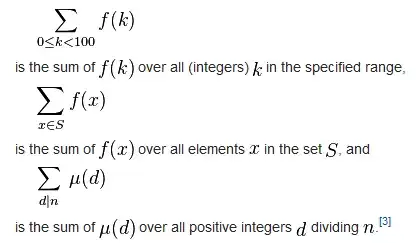Has anyone considered using programming notation? For example for an increment by 3
$$\sum_{\substack{n=0 \\ n+=3}}^{\inf} n$$
I think even better would be to put the increment in the middle of the sum (start under, increment middle, end top), but latex lacks support of that without making it look like the contents of the sum. If it were understood to be the += operation, you could even just put '3' in the center and have it understood that this means increment.
You could even make stranger increment conditions like in terms of remainders if this is what you want
$$\sum_{\substack{n=0 \\ n\%3=1}}^{\inf} n$$
would give every number just after a multiple of 3. Admittedly for this specific case you could just start at 1 and index by 3 but this notation could be extended to odder situations.
